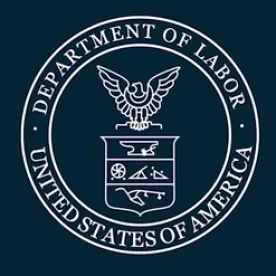On July 7, 2020 the DOL issued a proposed prohibited transaction exemption (PTE) that would allow conflicted recommendations resulting from nondiscretionary fiduciary investment advice. The proposal is titled “Improving Investment Advice for Workers & Retirees.” As background, an exemption is an exception to the prohibited transaction rules, but the exception is only available if its conditions are satisfied…and there are conditions.
If finalized, the exemption would permit conflicted fiduciary advice to ERISA retirement plans, participants and IRAs. Many, if not most, investment recommendations of broker-dealers involve conflicts of interest, e.g., commissions on securities trades, 12b-1 fees on mutual funds, and commissions on variable annuities. Some advice by investment advisers also involve conflicts of interest, e.g., revenue sharing. And some conflicts apply to both, for example, recommendations of rollovers to IRAs.
However, the prohibited transaction rules do not apply to all recommendations. Instead, they only apply to fiduciary recommendations, and fiduciary status is determined by the DOL’s 5-part functional test. In this context, “functional” means that, if the recommendations or advice satisfy the 5-part definition, then the firm and the advisor are fiduciaries for their recommendations to plans, participants and/or IRA owners. In the past, many broker-dealers have taken the position that their recommendations were not fiduciary advice because their services did not satisfy the “regular basis” part of the test, that is, they reasoned that they did not make recommendations to the plan or participant on a regular basis. I don’t have much experience with how broker-dealers argued that they were not fiduciaries for recommendations to IRAs, but it hasn’t mattered (in the sense that there haven’t been consequences) in the past because, as far as I know, the IRS, SEC and FINRA have not examined IRAs for prohibited transactions resulting from fiduciary recommendations.
But, in the preamble to the proposed PTE, the DOL has adopted a much more aggressive interpretation of “regular basis.” That is, the DOL said that it had changed its mind on what “regular basis” means and now has a much more expansionary view. It gives two examples. The first is that, if an advisor has a relationship where the advisor regularly gives financial advice to an investor, and subsequently makes a rollover recommendation to the investor, the DOL tacks the individual advice to the rollover recommendation and finds that advice is being given on a regular basis. In the past, the DOL would not have considered the earlier personal investment recommendations to determine if advice was being given on a regular basis. (Just FYI, I use the word “advisor” for its broadest meaning. It could be an investment adviser, a representative of a broker-dealer, an insurance agent or broker, or any other person who makes investment-type recommendations.)
In the preamble the DOL also gave an example of an advisor who makes a rollover recommendation to a participant in contemplation that the participant will roll over the money to an IRA with the advisor, and the advisor will make recommendations about how to invest the IRA (and thereafter about whether to buy or sell investments in the IRA).
Keep in mind that the 5-part test is functional. In other words, it is based on what is contemplated or actually happens and not necessarily on what the paperwork says. In fact, the DOL has said that, while any agreements between the advisor and the investor are facts to be considered, they are not, in and of themselves, determinative of whether a fiduciary relationship has been established (for example, a provision that says that recommendations will not be made on a regular basis will not control if, in fact, they are made regularly).
As a result of this expanded definition, many more rollover recommendations will be considered to be fiduciary recommendations.
On the other hand, if a rollover recommendation is made and there is not a pre-existing financial advice relationship and ongoing advice is not contemplated, the advisor would likely not be a fiduciary for purposes of the rollover recommendation. That might occur where, for example, an advisor recommends a rollover into a fixed annuity (e.g., as an individual retirement annuity) and no further financial recommendations are contemplated.
The PTE is just a proposal at this point. It may be modified before becoming final or, alternatively, a final version may be issued too late to become effective before a new President is sworn in. In that latter case, and if there is a change of political parties in the White House, regulations are usually delayed and reviewed to see if they are consistent with the policy positions of the new administration. If Democrats capture the White House, it is possible, perhaps even likely, that the exemption will be withdrawn and reworked to be more restrictive or, at the least, to have more demanding conditions.
My next article will continue a discussion of the proposed PTE, with a focus on the conditions.




 />i
/>i
